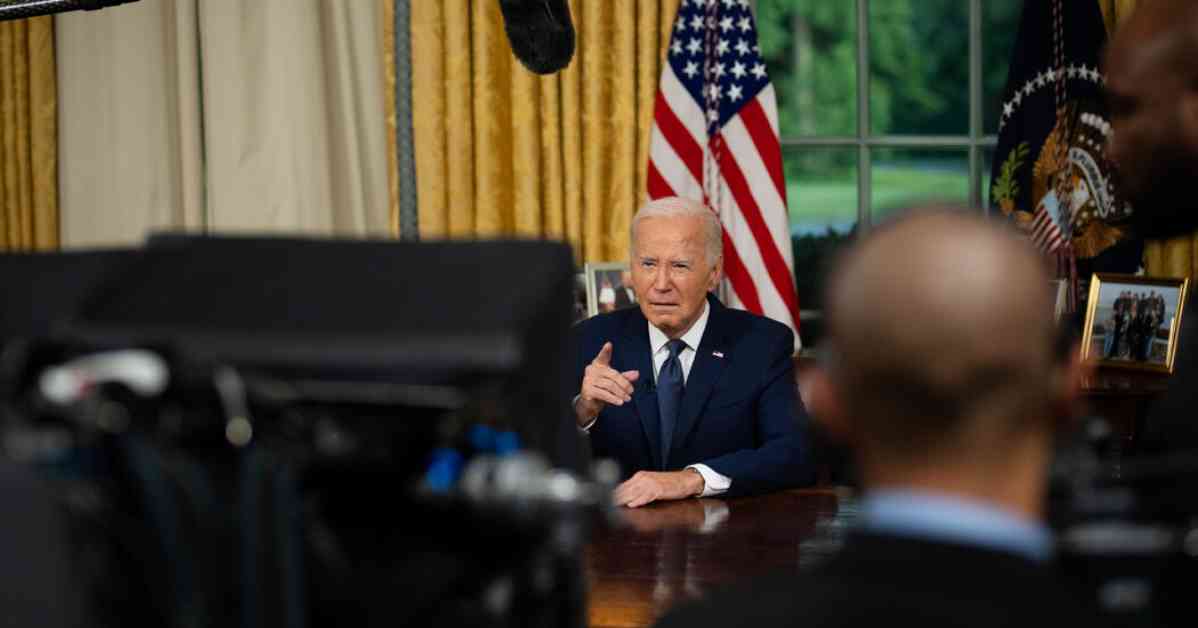President Biden is scheduled to speak to the nation from the Oval Office on Wednesday evening. This announcement came after he revealed on Sunday that he would be stepping down from the presidential race, shifting the focus away from Donald J. Trump and the Republican National Convention.
In anticipation of President Biden’s upcoming address, the Trump campaign sent a letter to major networks ABC, NBC, and CBS, demanding equal airtime for Mr. Trump. The former president’s team argued that since Mr. Biden’s speech is likely to touch on endorsing Vice President Kamala Harris as his successor, it should be considered a campaign commercial rather than a genuine news event.
The letter from the Trump campaign referenced the Federal Communications Commission’s “equal time” rule, which mandates that all candidates receive fair and equal access to airtime. Despite this request, none of the broadcast networks have provided a response as of Tuesday night.
This move by the Trump campaign harkens back to a time when broadcast networks were required to uphold public interest standards, ensuring that all sides of an issue were presented and candidates were granted equal airtime. The demand for equal airtime reflects a desire to maintain fairness and balance in the media landscape, particularly in the midst of a high-stakes political moment.
As the nation awaits President Biden’s address and potential insights into his future plans, the call for equal airtime serves as a reminder of the importance of equitable media coverage in a democratic society. It highlights the ongoing debate over media bias and the need for transparency in broadcasting political content.
In a rapidly evolving media landscape, where social media and digital platforms play an increasingly prominent role, the issue of equal airtime remains a relevant and pressing concern. As political campaigns and public figures seek to communicate their messages to a wide audience, ensuring that all voices are heard and represented fairly is essential to upholding the principles of democracy and informed public discourse.


















